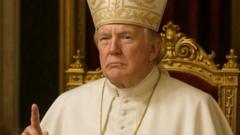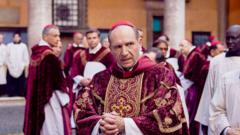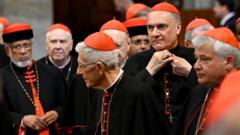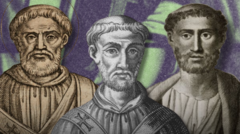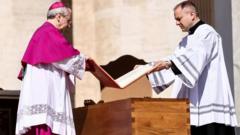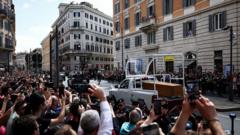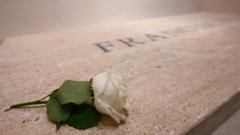As the conclave approaches, deep ideological divides among cardinals signal a critical juncture for the Catholic Church's future.
The Struggle for the Papacy: Ideologies and Future Directions

The Struggle for the Papacy: Ideologies and Future Directions
Cardinals Prepare for a Pivotal Decision on the Church’s Next Leader
As the cardinals convene in Rome to determine Pope Francis’ successor, the atmosphere is charged with questions of change versus consistency within the Church. This conclave mirrors the ideological polarization seen globally, with conservative members often at odds with the progressive stance Pope Francis took during his papacy.
Notably, the traditional split between liberal and conservative factions does not entirely reflect the intricate ideological dynamics shaping the Vatican. While some conservative cardinals publicly disagreed with Francis, who championed migrants and the impoverished, the broader Catholic doctrine emphasizes these core principles.
The decision ahead will act as a pivotal referendum on whether to uphold Francis' inclusive legacy or shift towards a more traditionalist approach, creating divisions that could stifle dialogue, warns Anna Rowlands, a political theologian at Durham University.
Ultimately, at the heart of this conclave lies a fundamental philosophical inquiry: who should shape the direction of the Catholic Church moving forward? The outcome will reveal not just the next pope but also the Church's willingness to engage in an evolving dialogue amidst a diverse congregation of beliefs.

